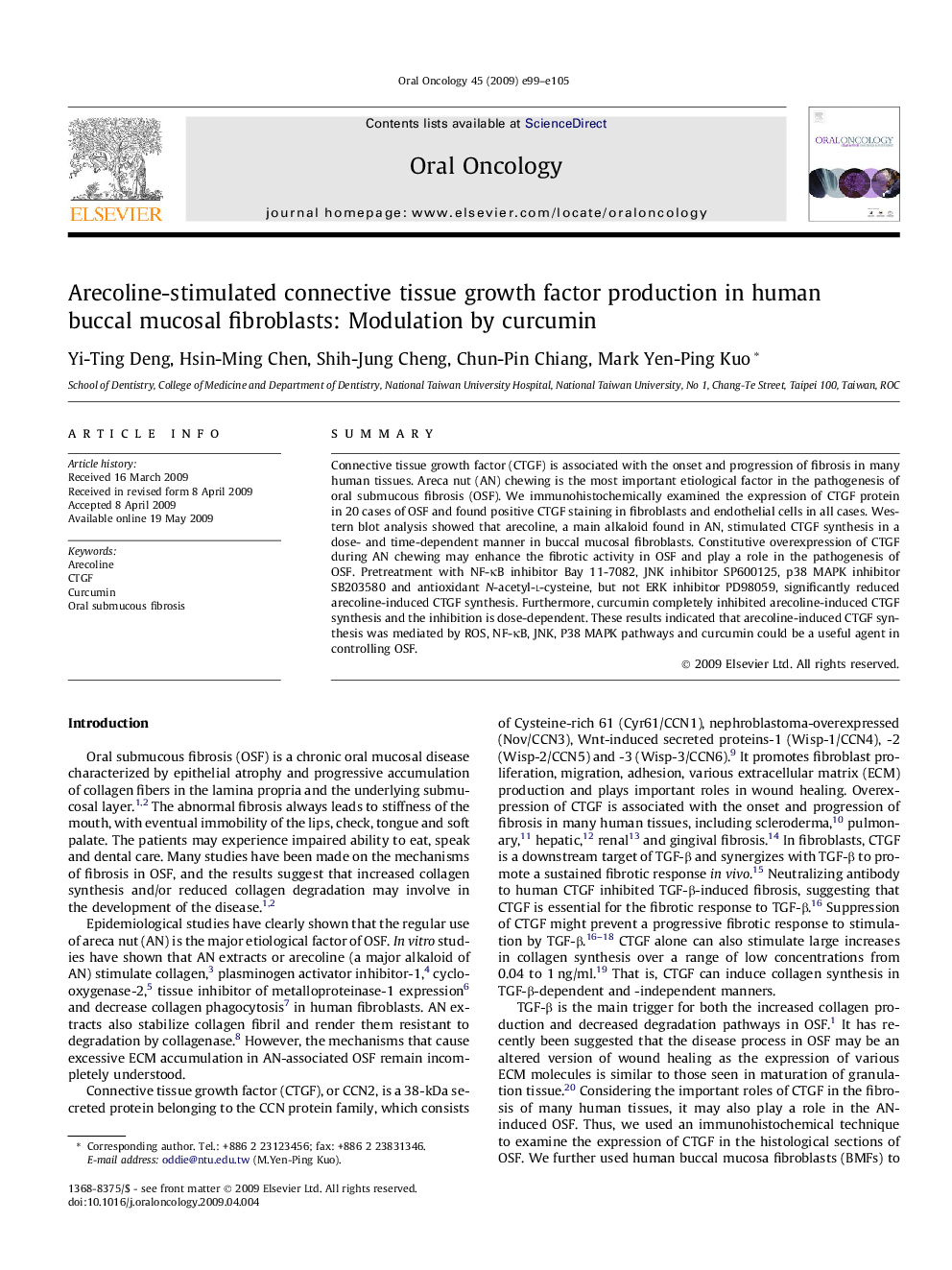| Article ID | Journal | Published Year | Pages | File Type |
|---|---|---|---|---|
| 3165002 | Oral Oncology | 2009 | 7 Pages |
SummaryConnective tissue growth factor (CTGF) is associated with the onset and progression of fibrosis in many human tissues. Areca nut (AN) chewing is the most important etiological factor in the pathogenesis of oral submucous fibrosis (OSF). We immunohistochemically examined the expression of CTGF protein in 20 cases of OSF and found positive CTGF staining in fibroblasts and endothelial cells in all cases. Western blot analysis showed that arecoline, a main alkaloid found in AN, stimulated CTGF synthesis in a dose- and time-dependent manner in buccal mucosal fibroblasts. Constitutive overexpression of CTGF during AN chewing may enhance the fibrotic activity in OSF and play a role in the pathogenesis of OSF. Pretreatment with NF-κB inhibitor Bay 11-7082, JNK inhibitor SP600125, p38 MAPK inhibitor SB203580 and antioxidant N-acetyl-l-cysteine, but not ERK inhibitor PD98059, significantly reduced arecoline-induced CTGF synthesis. Furthermore, curcumin completely inhibited arecoline-induced CTGF synthesis and the inhibition is dose-dependent. These results indicated that arecoline-induced CTGF synthesis was mediated by ROS, NF-κB, JNK, P38 MAPK pathways and curcumin could be a useful agent in controlling OSF.
